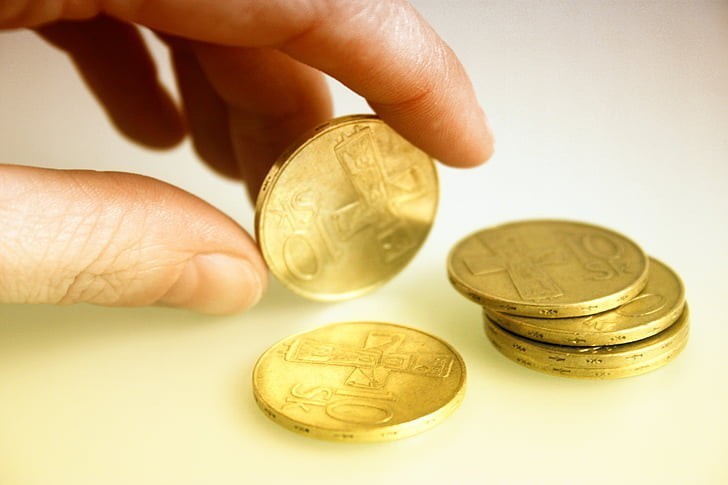Slovakia’s Crypto Surge: Tax Reforms, Startups, & the Rise of a Euro Blockchain Hub
Jul 31, 2025, 10:08am
Slovakia is quickly becoming one of Europe’s most exciting emerging markets for cryptocurrency development.
Slovakia is quickly becoming one of Europe’s most exciting emerging markets for cryptocurrency development. The country is adversely affected by sweeping changes in tax policy, a thriving startup ecosystem, and improved consumer education, all at once, which should reshape the country’s intentions to establish itself as a possible regional hub for digital assets. With over 550 registrations as a Virtual Asset Service Provider (VASP), increases in the real-world use of cryptocurrency, and an EU-wide plan for regulatory integration in the form of MiCA, Slovakia has momentum generated by positive fiscal policies, willing entrepreneurs, and everyday users showing trust in the new medium of exchange and value storage. This article will highlight the multi-faceted growth of crypto in Slovakia, from the explosion of exchanges, state-investors, and developers, to agencies like cryptoguide.sk partnering with athletes who are on board with this shift.
1. Slovakia’s Crypto Momentum: A Surge in Usage and Market Activity
Slovakia is seeing a noticeable increase in cryptocurrency use, as usage has more than doubled in cities like Bratislava and Košice. An article from TechBullion states that the changes are, in large part, due to tech entrepreneurs, increased investor interest, and positive fiscal shifts in the market. The crypto experts from cryptoguide.sk also noted increased wallet creation, increased trading frequency, and a significant increase in local fintech projects.
Are you interested in specific platforms? Be sure to check out the Spirex crypto exchange review for a technical review of one emerging exchange that just began expansion in Slovakia.
2. Crypto Exchanges Flourishing: Density and Regulation Dynamics
There are now more than 550 Virtual Asset Service Providers (VASPs) based in Slovakia – far more per capita than larger EU countries such as France – even if the National Bank of Slovakia does not provide a high degree of direct oversight at this stage. This unusual excess is referred to as a “density anomaly,” and it nevertheless indicates high levels of entrepreneurial activity and demand in spite of the lack of clarity in regulations.
In the backdrop of such developments, organizations like cryptoguide.sk are now trying to educate users on how to use exchanges appropriately so that they can consider issues such as liquidity and AML/KYC compliance.
3. Tax Incentives Power Growth: From High Rates to 7 %
An amendment to the previous tax law passed in June 2023 changed the capital gains tax on crypto significantly by lowering it from 36–39 % to 7 % (after holding the asset for at least one year), with an exemption from the health insurance tax as long as the crypto is not business property.
The experts at cryptoguide.sk indicated that the measure was intended to encourage long‑term hodling and enhance compliance, and their analysis shows that average holding periods have increased since the beginning of 2024, aligning with their incentives.
4. AML and EU Regulation on the Horizon
Slovakia presently regulates exchanges under the national AML and KYC system (and is regulated by trade licensing offices), but is expected to fully adopt the EU’s MiCA Regulation in 2024-2025.
The experts on cryptoguide.sk underscore that MiCA will improve clarity in definitions, licensing frameworks, and consumer protections, fundamentally changing the operations of exchanges and wallet providers in the region.
5. Rising Consumer Awareness and Education
Public interest in crypto topics – from trading to regulation – has grown sharply in places like Denník N, SME.sk, and Trend.sk. This demonstrates that there is an audience looking for information and direction. In this environment, cryptoguide.sk has emerged as a trustworthy partner to provide:
- Expert guides to cryptocurrencies
- Agnostic reviews of exchanges and wallets
- New updates in the regulation of cryptocurrency
- Risk-management guidance for Slovak investors
Their own page-views data indicate that their readers are also looking to the “Exchange comparison” and “Tax & regulation” categories a lot.
🔗Find out more in our Tax & Crypto Regulation category or our Exchange Reviews section
6. Institutional Engagement, Startups & Real-world Crypto Usage
Slovak fintech startups are investigating dApps, token economies, and blockchain use cases – from smart contracts in land registries to niche digital identity pilots. In parallel, some e‑commerce vendors, freelancers, and cafés in major cities have begun accepting Bitcoin or Ethereum as a form of payment.
Appetite for investment is also increasing. A forecast from Statista projects cryptocurrency revenue in Slovakia will reach US $37.8 million by 2025, with users numbering nearly 453k and penetration exceeding 8 %.
7. Key Challenges: Regulatory Ambiguity & Skepticism
However, this progress has not alleviated the regulatory uncertainty users have faced. The National Bank of Slovakia still claims that crypto is not the subject of formal financial regulation, and numerous unregulated VASPs operate without standards or consistency.
Moreover, Reddit commenters highlight the volatility of tax policy: one states, “Of course, we can be hub for crypto… after HODLing 1 year 7 % taxes… they stopped the new law, so here we are again 33-39 % taxes…”.
Evidently, legislative ambiguity is destabilizing users and firms.
8. Why It Matters: Expertise from Cryptoguide.sk and Beyond
Overall, the crypto-situation in Slovakia is becoming less niche as it moves into the mainstream-motivated by government tax reforms, increased activity by virtual asset service providers (VASPs), increased education by cryptoguide.sk, and possible regulation from the EU. As the cryptokingdom grows, Slovak residents and businesses are able to leverage expert insight and guidance to limit adverse base volatility and to adjust to new policy changes.
For those residents or investors who wish to learn deeper information, cryptoguide.sk is a reliable Slovak source for cryptocurrency.
Learn more in our other posts, Blockchain Startups in CEE and Crypto Tax Strategies for European Investors.
📚 External Authority Source
For a general overview of exchange proliferation and regulatory risk in Slovakia, Forbes looked into the country’s “density anomaly,” highlighting the challenges of protecting investors in a country with regulatory oversight that is “weak.”
✅ Final Take
Slovakia is emerging to be a Europe-friendly crypto innovation hub—fuelling factors available in Slovakia include pro-cryptocurrency tax policy, technology start-up culture, and emerging public interest. As cryptoguide.sk experts help its users navigate the regulatory landscape, choose exchanges, and develop investment strategies, digital assets with their legal and regulatory framework and support offered in Slovakia position them for sustainable growth for both retail and institutional adoption in the future.





